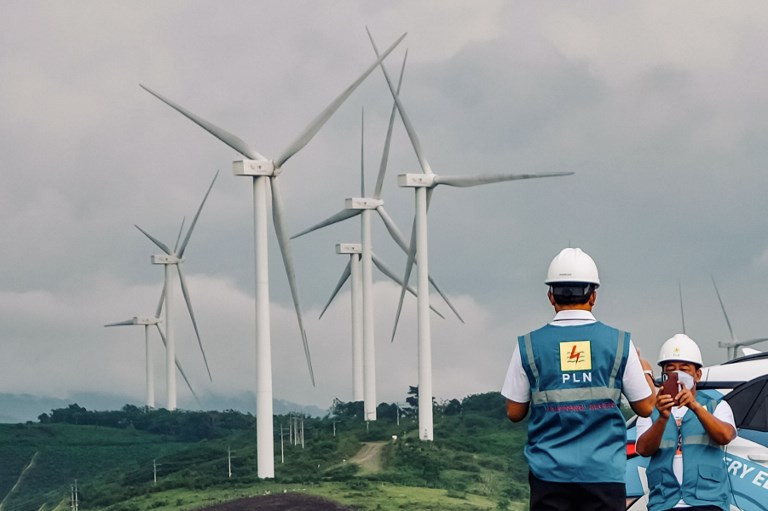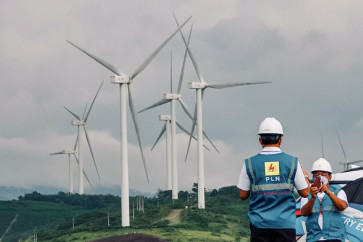Popular Reads
Top Results
Can't find what you're looking for?
View all search resultsPopular Reads
Top Results
Can't find what you're looking for?
View all search resultsIndonesia’s carbon tax ineffective to promote sustainable business
The application of the carbon tax needs to be accompanied by sufficient renewable energy alternatives and low-emission technology for it to create incentives to reduce emissions.
Change text size
Gift Premium Articles
to Anyone
W
ith all eyes on Indonesia for its climate action and the Group of 20 presidency on the line, taxing US$2.10 for a ton of carbon emissions may not be enough to save Indonesia from the climate crisis.
Next month, the government will put the carbon tax into practice through a pilot program directed at coal-fired power plants, but whether it will help the country significantly reduce greenhouse gas emissions is questionable.
A carbon tax is a price instrument that charges the amount of carbon emissions resulting from producing goods and services. The carbon tax follows a cap and tax scheme, where corporations pay taxes if their carbon emissions exceed the limit set by the government. Indonesia is set to charge a levy of Rp 30 per kilogram of CO2 equivalent (CO2e) or $2.10 per ton of CO2e.
This is a very small amount compared to the carbon tax rate of between $30 and $100 per ton of CO2e suggested by the World Bank and the International Monetary Fund (IMF).
Indeed, the initiative to introduce a carbon tax deserves a compliment as Indonesia is trying to live up to its commitment to better climate action, especially since the country has been fraught by the issue of deforestation that reportedly has remained rampant. More than 20 countries have also included a carbon tax in their climate strategy.
However, while the carbon tax initiative is a remarkable stepping-stone for Indonesia’s climate change mitigation, with one of the lowest carbon prices in the world, it might not serve as an effective incentive to shift market behavior toward sustainable operation.
One of the objectives of the carbon tax is to stimulate industry innovation and transition toward low-emission technology. If the price of emissions is too small, businesses will just see it as a modest increase to their production cost but not enough for them to invest and transform into a sustainable business operation. Some businesses might even opt to shift the burden of carbon price to their customers.



















